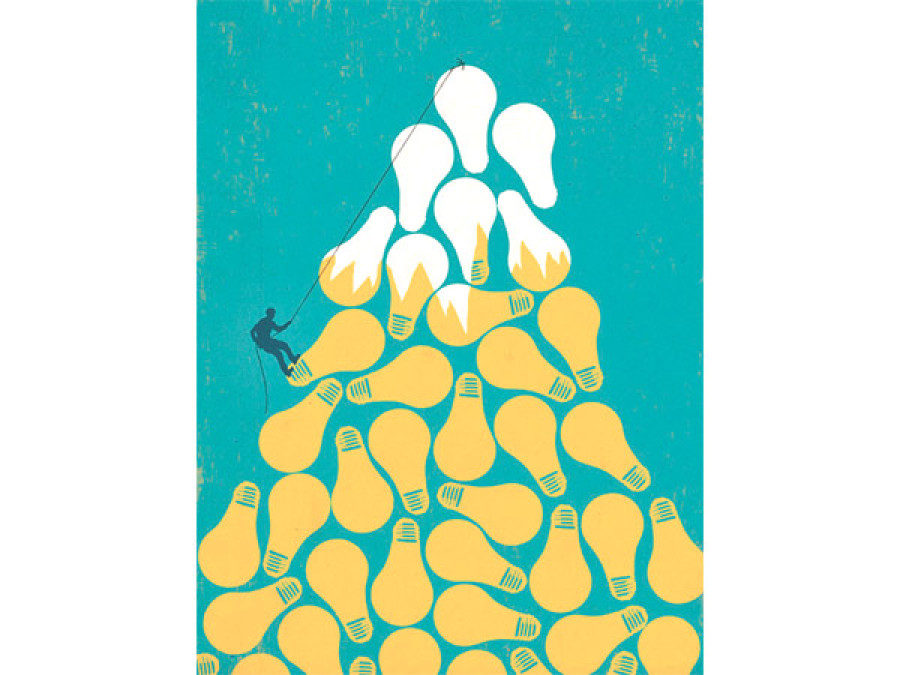Opinion
Let’s roll up our sleeves
A self-reliant and independent Nepal should be the goal of the new government
Prem Dangal
Fidel Castro once famously said,“Great crisis always delivers great solutions.” This has proved to be true for Nepal on more than one occasion: People’s Movement 2006 and the Great Quake in April. During the 2006 People’s Movement, the Nepali people had faced huge problems after the king took over and impose an autocratic rule. The people were deprived of the right to assemble, telephone lines were cut, political leaders were either sent to jail or detained in their houses, activists were arrested en masse, curfews were imposed and an emergency was declared. The whole country reeked of terror. But slowly, the people got together and fought till they emerged victorious, forcing the king to step down. The great crisis brought all the political parties, civil society and the general public together to search for a solution. And it delivered a solution—a republic.
The other recent crisis that hit Nepal was the April earthquake that killed more than 8,000 people, destroyed thousands of houses and flattened centuries-old heritage sites. Hundreds of thousands of people became homeless, resulting in suffering on an unprecedented scale. Against this backdrop, all the major political parties, recognising the need for national unity, forged an alliance to expedite relief and reconstruction work. The people demonstrated solidarity on an unprecedented level. Further, the leaders put aside their differences and intensified their efforts to promulgate the constitution. And even this crisis came to an end with the birth of a new constitution.
Problems and solutions
Now, we are facing yet another crisis: India’s undeclared blockade due to its dissatisfaction over Nepal’s new constitution. The blockade along the Nepal-India border has hindered people’s access to petroleum products and essentials goods, adversely affecting their daily lives. The country’s economy is in a shambles. Shutting down transportation, factories, service centres, schools and offices can turn back the wheels of development for Nepal. Moreover, the blockade is against all international treaties and agreements to which both Nepal and India are a party.
Nepal, a disaster-prone landlocked country, neither produces petroleum nor generates enough hydropower. Against this backdrop, the country needs a concrete plan of action to become energy efficient. In order to overcome the present situation, there are a few options the government should consider.
Purchasing petrol- or diesel-powered vehicles should be dropped from now on in favour of electric vehicles. Likewise, bicycles should be accorded priority over motorbikes. To reduce our dependence on petroleum products, the import duty on electric vehicles should be reduced to 5 percent or less. Similarly, government offices and ministries should be encouraged to purchase electric vehicles. An electric public transportation system should be introduced in the country. And for all this, charging stations for electric vehicles need to be established. At the same time, we should go with other alternative sources of energy such as bio-fuel and ethanol.
The prime minister’s recent proposal to generate 200 MW of electricity is crucial to end the energy crisis in the country. Eliminating load-shedding within a year is an ambitious declaration, but alternative sources of energy, such as solar power, should also be explored besides producing more electricity. Solar energy is one of the best options available to fulfil our everyday needs. Similarly, electricity can be generated on a large scale through solar farming and fed into the national grid.
Another area of concern is cooking gas. Liquefied petroleum gas can be easily replaced with bio-gas; the government only needs to promote bio-gas plants in cities. Moreover, it is important that pending hydropower projects are completed as soon as possible. Sufficient budget allocations should be made for these projects, and obstacles such as strikes should be removed. Similarly, a trade transit agreement with China is necessary to import petroleum products, not only to solve the current crisis but also to make sure that we do not face a similar situation in the future. Building a self-reliant economy will help us keep our national integrity and sovereignty intact.
Self-reliant Nepali
The political response to the embargo has also been correct. Political leaders have taken a strong stand against this unjust imposition which has taken away our right to transit facilities as a landlocked country. The people are ready to suffer and find alternatives, but they will never kneel before the unjust Indian embargo. Even the Nepali diaspora around the world has shown strong support to the stand taken by the government and condemned the blockade. The international community has also expressed solidarity.
We are now left with two options. One, the present situation will continue unless we surrender, which the brave Nepalis will never do. Two, we have to look for ways to become self-reliant in essential items including petroleum products and strengthen the national economy. Undoubtedly, Nepalis will prefer the second option. History is testimony to the fact that once the people unite, no enemy, no matter how powerful, can get the better of them. Every problem has a solution. Every cloud has a silver lining. We should be able to change this crisis into an opportunity. A solution is inherently present in every crisis, but we need to have a vision or farsightedness to look for it. We must fight back for the sake of our independence. And hopefully, even this crisis will deliver a great solution—a self-reliant and independent Nepal.
Dangal is a member of the National Planning Commission




 17.9°C Kathmandu
17.9°C Kathmandu











